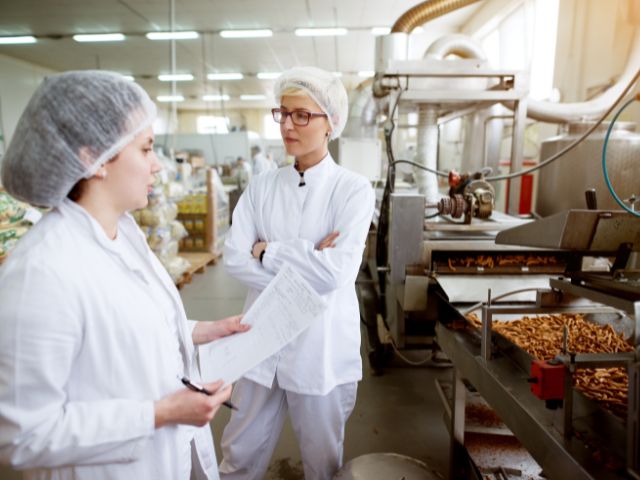
Food production has undergone a silent technological revolution to address the complexities of a burgeoning global population, constrained natural resources, and a changing climate. Understanding how modern food production is transforming the world is key to ensuring quality manufacturing and distribution standards. We explore the various facets of this revolution and their implications for our food infrastructure in this post.
Robots are turning agricultural fields into precision playgrounds, plowing, sowing, weeding, and harvesting crops more efficiently than their human counterparts. Drones are aiding precision farming by monitoring crop health and spraying fertilizers and pesticides with pinpoint accuracy. These technologies reduce the labor burden, help to prevent over-spillage and protect the environment.
Precision agriculture is arming farmers with data-driven insights to optimize their yields and reduce costs. Sensors embedded in the soil provide real-time information about moisture levels, nutrient content, and growth cycle metrics. This data, often analyzed and presented through advanced software, helps farmers make informed decisions down to the specific square meters of a field. The result is increased crop yields with less water, fertilizer, and pesticide usage—a win for both the farmer’s pocket and the planet.
Food packaging is witnessing remarkable advancements that complement the innovations in food production. The role of horizontal form-fill (HFF) machines in food packaging is at the forefront of these developments. Innovative HFF machines now feature enhanced automation, precision, and speed, accommodating the diverse needs of modern food production lines. Notably, manufacturers increasingly design these machines with sustainability in mind, utilizing eco-friendly materials that reduce waste and improve recyclability.
The conversations surrounding sustainable animal protein are incomplete without mentioning lab-grown meat and cultured dairy. This is a branch of food technology that uses cell culture methods to create edible products, thereby significantly reducing the environmental footprint of traditional animal farming. However, the technology is not without its challenges, ranging from scalability and cost to cultural acceptance. Yet, it offers an intriguing path to feed a growing population sustainably without expanding feedlots and grazing lands.
The impact of modern food production technologies on the fight against climate change is a double-edged sword. On one side, these innovations reduce the industry’s carbon footprint by optimizing resource use and minimizing waste. However, dealing with the energy demands of high-tech farms and the environmental consequences of e-waste from retired equipment is important. Balancing the scales between technology’s role in feeding the world and its environmental implications is a challenge that requires thoughtful regulation and continued innovation.
The silent revolution in modern food production is transforming the world and is a key example of human ingenuity. The path forward is not without its obstacles, and we must tackle them with a balanced perspective on the interplay between technology, humanity, and the Earth.
24World Media does not take any responsibility of the information you see on this page. The content this page contains is from independent third-party content provider. If you have any concerns regarding the content, please free to write us here: contact@24worldmedia.com